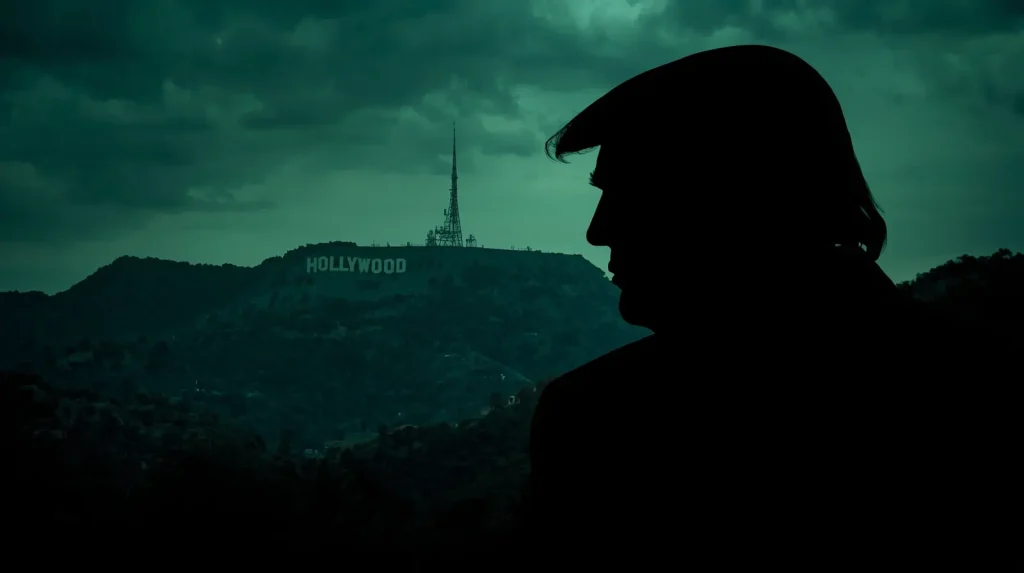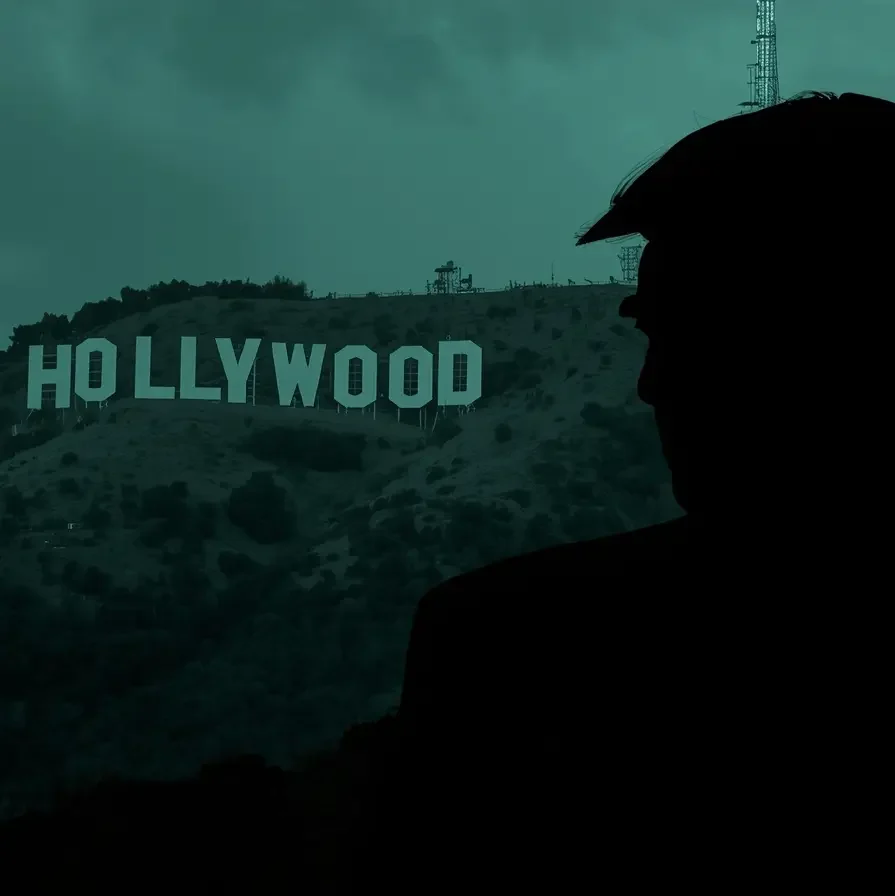Trump Goes After Non-US Movies with 100% Tariff Threat
Trump is making headlines again, this time in the entertainment industry. He is threatening a 100% tariff on movies produced outside the US, and he is confident this will solve the “long time, never ending problem” of American films being produced overseas.
Trump wrote on Truth Social, “Our movie-making business has been stolen from the United States of America by other countries, just like stealing candy from a baby.”
In particular, he zeroed in on California, berating its leadership and saying the state has been “particularly hard hit” by offshoring movie production.
A Real Push for America First in Filmmaking
This isn’t the first instance when Trump Tweets were followed up with required films. Back in May he said he would collaborate with Hollywood executives to “reverse the fast death” of the American film industry, partly due to his plans to impose tariffs on film projects from outside the US.
Recent comments come after a series of new trade announcements, which include:
- 100% tariffs on branded drug imports
- 50% tariffs on kitchen and bathroom cabinets
- 25% tariffs on upholstered wooden furniture
- 10% tariffs on softwood timber and lumber
Among these sweeping changes, the concern of punishing non-US made movies has certainly captured international attention.
What Would A 100% Tax On Non-US Movies Mean?
Although the U.S. government has made statements, there are still a lot of questions:
Will the tax apply to movies streamed on services like Netflix, Amazon Prime, and Disney+?
Will American studios shooting films abroad face punishment?
How will the government figure out what a “non-US” movie is, given the industry is so globalized?
There is agreement from legal and trade professionals, as well as those in the film industry, that enforcement would be incredibly complex, if not impossible.
Dan Coatsworth, an analyst at AJ Bell, noted that,
“It is certainly the case that 100% tariffs on movies made outside of the US would raise more questions than it would answer. Tax incentives are a huge draw for filmmakers, they aren’t simply abandoning the US.”
Canadian Chamber of Commerce Reacts
One of the biggest sources of backlash came from Canada, a key location for US-affiliated film production.
Catherine Fortin-LeFaivre, Senior VP at the Canadian Chamber of Commerce, expressed deep concern:
“Tariffs may punish American studios filming in Canada, raising expenses, inhibiting investments, and hampering cross-border partnerships.”
She also mentioned that the suggested tax on films not from the United States would hurt the economies and put thousands of middle-class jobs at risk.
Global Film Hubs at Greater Risk
While the United States ranks as one of the best locations for film production, its rivals, including non-US countries like Canada, Australia, New Zealand, and the UK, have been narrowing the gap quickly in recent years.
narrowing the gap quickly in recent years.
As of 2024, the United States has $14.54 billion in production spending.
That is a 26% fall since 2022.
Spending has moved to other countries due to better incentives, locations, and labor force.
Recent blockbusters, including Deadpool & Wolverine, Wicked, and Gladiator II, were financed by US studios and filmed outside the US, raising doubt about the enforcement of the new tariff.
Unclear Boundaries for Non-US Classification
Identifying what a non-US film is border is anything but straightforward.
What if:
An American company finances a movie,
A filmmaker from outside the US directs it,
It gets filmed in Canada,
And a diverse, international cast takes.
Would that movie still get charged the 100% tariff?
Dan Coatsworth stated:
“The difficulty in understanding how Trump plans to lay the levy is that if studios are required to produce more than in the US, the costs will go up, and that will likely be passed to consumers.”
This is likely to ripple throughout the industry, affecting streaming services, movie theatres, and consumers.
Streaming Services Response
Streaming services like Netflix and Disney saw slight dips, although the stock market returned to stability.
Analysts believe the threat is less serious, as they are still no timelines for enforcement.
Uncertainty of tariffs on foreign film content dampens global distribution and streaming services.
UK Film Industry
The UK film industry, as another top international co-production, is also closely monitoring for updates.
A representative for the UK’s Department for Business & Trade said the following:
“The UK film industry employs millions and generates billions for our economy. We are waiting for clarification on how the American tariffs will impact non-US film productions.”
Why Are Studios Filming Outside the U.S.?
Studios are choosing filming locations outside the U.S. for several reasons:
- Lower costs of production
- Tax benefits and financial incentives
- Availability of experienced film crews
- Varied landscapes and architecture
- More relaxed regulations for labor unions
- Increased competition
Trump’s tax could change the global film production industry completely.
Closing Thoughts: Are 100% Tariffs Possible?
Trump’s proposed 100% tariffs on foreign films fits his typical anti-globalization agenda, though the proposal is missing a few major components:
- How will it be enforced?
- What are the legal definitions?
- What is the impact?
- What industry experts can be consulted?
These holes make it hard to estimate the implementation of the policy and how sustainable it is politically and legally.
One thing is certain, however: non-US film-producing countries have become a vital part of the Hollywood business framework. Any global shift means extreme pushback from producers, capital, and countries involved in the film industry.



Table of Contents
Reference Website : https://www.bbc.com/news/articles/c4g78e809zqo
Read More Article : https://bizrush.co/






